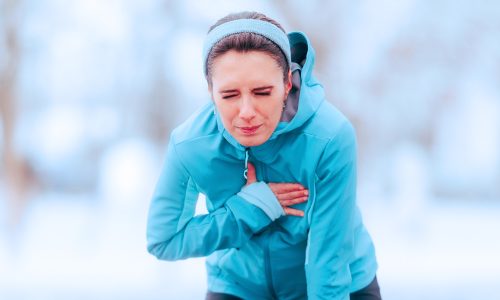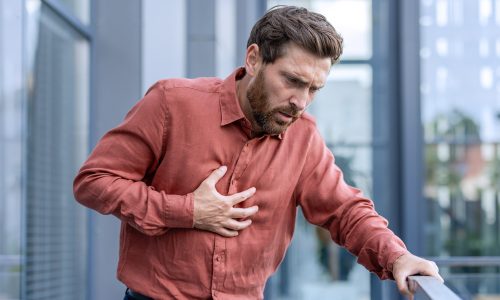When you stand up after lying down or sitting, gravity causes blood to pool in your legs, which can slightly lower your blood pressure. This change in blood pressure is a normal response. Certain cells then sense this dip and signal your heart to pump harder and faster to restore balance.
If you’re dehydrated or haven’t eaten for a while, you might feel dizzy after standing due to delayed blood flow. To know whether you have hypotension (low blood pressure) or not, book an appointment with a cardiologist and get your blood pressure checked regularly.
Even well-hydrated, well-fed individuals without hypotension can experience a minor blood pressure dip upon standing, which is normal according to the American Heart Association. However, new research indicates that a rise in systolic blood pressure upon standing could signify a higher risk for future cardiac events.
Background
A study published in Hypertension last week assessed data from over 1,200 Italians aged 18 to 45 with untreated stage 1 hypertension over 17 years. Stage 1 hypertension means their systolic blood pressure (the top number) was between 140 and 159, or their diastolic blood pressure (the bottom number) was between 90 and 100. Healthy blood pressure is defined as 120/80 mm Hg or lower. All participants had a low estimated risk for major cardiovascular events due to active lifestyles and healthy medical histories.
Researchers took blood pressure readings of participants in various positions, including standing and lying down. Typically, systolic blood pressure decreases slightly when standing, but for 10% of participants, it actually increased by at least 6.5 mm Hg. The study divided participants into two groups: the upper 10%, who experienced this rise, and the lower 90%, who saw a less significant rise or a dip.
Seventeen years later, the researchers found that the group with the systolic blood pressure rise of at least 6.5 mm Hg was twice as likely to have experienced a cardiac event or stroke than the other 90%. The study also found that factors such as obesity, family medical history, and activity levels did not influence the risk. However, participants in the higher-risk group were more likely to be smokers.
The results confirmed the initial hypothesis: a pronounced increase in blood pressure from lying to standing could be prognostically important for young people with high blood pressure. Researchers were surprised that even a relatively small increase in standing blood pressure (6-7 mm Hg) could predict major cardiac events in the long run.
For more information, refer to the link: https://www.ahajournals.org/doi/10.1161/HYPERTENSIONAHA.121.18579
A smaller subset of 630 participants had their stress hormone levels measured over 24 hours. Researchers discovered that individuals who experienced a rise in blood pressure upon standing had higher epinephrine-creatinine ratios. Epinephrine levels estimate the global effect of stressful stimuli over 24 hours, suggesting that those with the highest blood pressure when standing may have an increased sympathetic response (fight-or-flight) to stressors, causing an increase in average blood pressure.
How can you know if you’re at risk?
Book an appointment with a cardiologist and measure the blood pressure while lying down and standing up. However, this study’s results need further validation. The participants were all white, and most were men, so the findings shouldn’t be generalized to the broader population.
If you’re concerned about your blood pressure, regardless of posture, you can adjust your eating habits to promote heart health. Opt for the DASH (Dietary Approaches to Stop Hypertension) diet. Potassium helps kidneys remove excess sodium, so eating more potassium-rich foods like bananas, salmon, avocados, and white beans can aid in achieving healthy blood pressure. Cooking at home with lower-sodium ingredients also helps control sodium intake.
However, make sure to book an appointment with a cardiologist to know your health status.
Bottom Line
Here’s the bottom line: Individuals whose systolic blood pressure rose significantly upon standing were twice as likely to experience a cardiac event, such as chest pain, heart attack, or stroke.
Although the study’s demographic limitations call for further research, you can book an appointment with a cardiologist and get your blood pressure level checked regularly. Also, consuming potassium-rich foods can help protect your heart. For more information on this topic, connect with our experts at Advanced Cardiovascular Center.



